
Philip Massinger was an English dramatist. His finely plotted plays, including A New Way to Pay Old Debts, The City Madam, and The Roman Actor, are noted for their satire and realism, and their political and social themes.

Francis Beaumont was a dramatist in the English Renaissance theatre, most famous for his collaborations with John Fletcher.
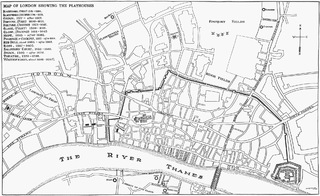
The Red Bull was an inn-yard conversion erected in Clerkenwell, London, operating in the 17th century. For more than four decades, it entertained audiences drawn primarily from the City and its suburbs, developing a reputation over the years for rowdiness. After Parliament closed the theatres in 1642, it continued to host illegal performances intermittently, and when the theatres reopened after the Restoration, it became a legitimate venue again. There is a myth that it burned down in the Great Fire of London but the direct reason for its end is unclear.

John Fletcher was an English playwright. Following William Shakespeare as house playwright for the King's Men, he was among the most prolific and influential dramatists of his day; during his lifetime and in the Stuart Restoration, his fame rivalled Shakespeare's. Fletcher collaborated in writing plays, chiefly with Francis Beaumont or Philip Massinger, but also with Shakespeare and others.
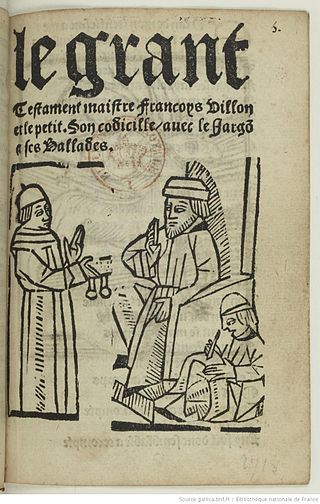
Thieves' cant is a cant, cryptolect, or argot which was formerly used by thieves, beggars, and hustlers of various kinds in Great Britain and to a lesser extent in other English-speaking countries. It is now mostly obsolete and used in literature and fantasy role-playing, although individual terms continue to be used in the criminal subcultures of Britain and the United States.
Gerard Langbaine was an English dramatic biographer and critic, best known for his An Account of the English Dramatic Poets (1691), the earliest work to give biographical and critical information on the playwrights of English Renaissance theatre. He is sometimes called Junior or the Younger to distinguish him from his father (1609–58) of the same name, a Doctor of Divinity who was Provost of The Queen's College, Oxford (1646–58) and Keeper of the University Archives.

Francis Kirkman appears in many roles in the English literary world of the second half of the seventeenth century, as a publisher, bookseller, librarian, author and bibliographer. In each he is an enthusiast for popular literature and a popularising businessman, described by one modern editor as "hovering on the borderline of roguery".
Cupid's Revenge is a Jacobean tragedy written by Francis Beaumont and John Fletcher. It was a popular success that influenced subsequent works by other authors.
The Beaumont and Fletcher folios are two large folio collections of the stage plays of John Fletcher and his collaborators. The first was issued in 1647, and the second in 1679. The two collections were important in preserving many works of English Renaissance drama.

Philaster, or Love Lies a-Bleeding is an early Jacobean era stage play, a tragicomedy written by Francis Beaumont and John Fletcher. One of the duo's earliest successes, the play helped to establish the trend for tragicomedy that was a powerful influence in early Stuart-era drama.
The Wild Goose Chase is a late Jacobean stage play, a comedy written by John Fletcher, first performed in 1621. It is often classed among Fletcher's most effective and best-constructed plays; Edmund Gosse called it "one of the brightest and most coherent of Fletcher's comedies, a play which it is impossible to read and not be in a good humour." The drama's wit, sparkle, and urbanity anticipated and influenced the Restoration comedy of the later decades of the seventeenth century. The term "wild-goose chase" is first documented when used by Shakespeare in the early 1590s, but appears as a term with which his audience would be familiar, as there is no attempt to define its meaning.
The Humorous Lieutenant, also known as The Noble Enemies, Demetrius and Enanthe, or Alexander's Successors, is a Jacobean era stage play, a tragicomedy written by John Fletcher. Highly praised by critics, it has been called "Fletcher's best comedy."
Wit Without Money is a Jacobean era stage play, a comedy written by John Fletcher, and first published in 1639.
Beggars' Bush is a Jacobean era stage play, a comedy in the canon of John Fletcher and his collaborators that is a focus of dispute among scholars and critics.
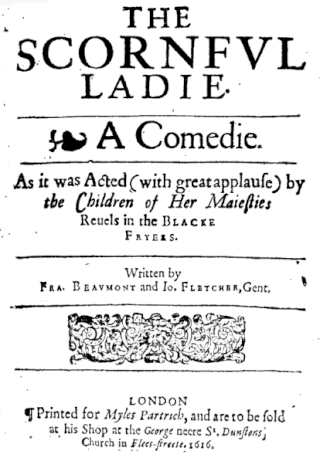
The Scornful Lady is a Jacobean era stage play, a comedy written by Francis Beaumont and John Fletcher, and first published in 1616, the year of Beaumont's death. It was one of the pair's most popular, often revived, and frequently reprinted works.

Monsieur Thomas is a Jacobean era stage play, a comedy written by John Fletcher that was first published in 1639.
The Chances is a Jacobean era stage play, a comedy written by John Fletcher. It was one of Fletcher's great popular successes, "frequently performed and reprinted in the eighteenth and nineteenth centuries."
Robert Cox was a seventeenth-century English actor, best known for creating and performing the "drolls" that were a permitted form of dramatic entertainment during the English Civil War and the Interregnum, when theatres were officially closed and standard plays were not allowed.
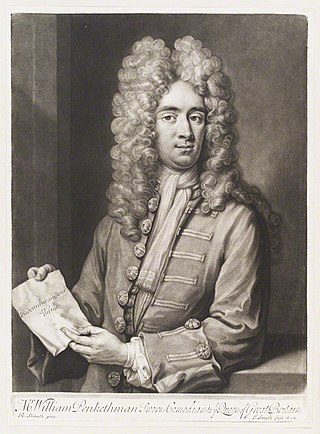
William Pinkethman was an English comic actor, a low comedian with a droll style, and theatre manager. He was considered an imitator of Anthony Leigh.
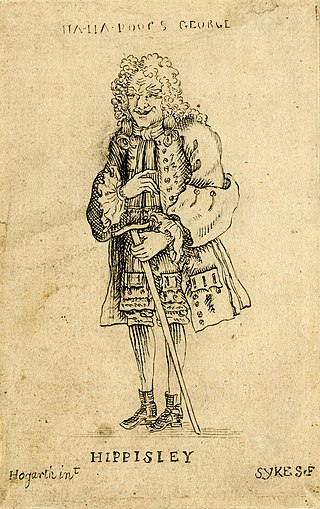
John Hippisley was an English comic actor and playwright. He appeared at Lincoln's Inn Fields and Covent Garden in London, and was the original Peachum in The Beggar's Opera. He opened a theatre in Bristol, the Jacobs Well Theatre, where he and his daughter Elizabeth Hippisley appeared.











